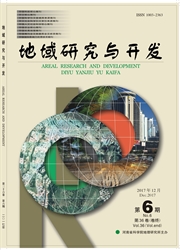

 中文摘要:
中文摘要:
以外来蓝领(即工厂、企业中的外来产业工人)高度集聚的广东省东莞市为例,基于814份有效调查问卷数据,采用Logistic模型和描述性统计分析,结合预假设及反馈验证,揭示了外来蓝领工人城市定居意愿的影响因素。回归结果显示:工资收入、产权住房、工作时间、是否已婚、生活满意度等经济、环境、家庭和心理因素均对外来民工的定居意愿产生显著的影响;而年龄、性别、户口性质、受教育水平等因素未通过显著性检验,既反映现有文献中存在的争议,也反馈了当地的真实情况。相关统计分析发现,拥有资格证书、本地户口及其赋予的福利权利、良好的居住环境也有助于提高外来蓝领农民工的定居意愿。最后,讨论了提高外来蓝领工人城市定居意愿的政策启示。
 英文摘要:
英文摘要:
Based on a questionnaire survey conducted in Dongguan City of Guangdong Province,and combined with statistical analysis method,this article aims to explain the influencing factors of immigration and settlement. Results from logistic regression models indicate that: The most affecting migrants settlement intend fundamental factors are economic factors,which play a dominant role in this regard. The migrant workers' wage income is the intrinsic root,and their residential preferences and housing types are the external performance. Working and living environment of migrant workers in Dongguan for their settlement have a significant effect,but the impact of their social cohesion is not as strong as assume. Urban residential satisfaction is a directive of psychological factors,and subjective economic level as a supplementary evidence,they also have some kind of performance in the model. Migrant workers' personal characteristics have little influence on the whole settlement intention. Specifically,marriage and family factors play a positive role. Human capital,which measured by education experience and qualifications,has also some positive impact on residential preferences. Hukou,as the representative of institutional factors,directly affected migrant workers' settlement intention is being weaken. It through other closely connection aspects,such as medical,educational,social insurance and other policies,etc.,have an indirect and negative effect. Therefore,the local government should accelerate the process of migrant workers population urbanization based on the level and degree of different factors.
 同期刊论文项目
同期刊论文项目
 同项目期刊论文
同项目期刊论文
 期刊信息
期刊信息
